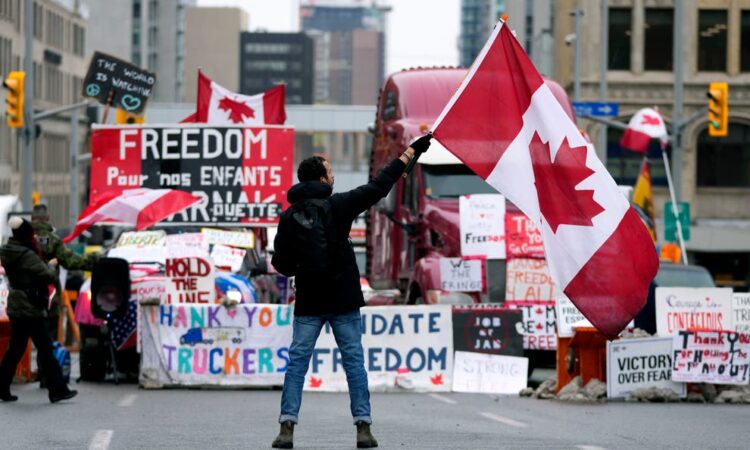A Canadian judge has ruled that the government’s use of the Emergencies Act to quell weeks of protests by truckers and others angry over COVID-19 restrictions in 2022 was unreasonable and unconstitutional
A Canadian judge has ruled that the government’s use of the Emergencies Act to quell weeks of protests by truckers and others angry over COVID-19 restrictions in 2022 was unreasonable and unconstitutional.
Up to thousands of protesters clogged the streets of the capital of Ottawa and besieged Parliament Hill, demonstrating against vaccine mandates for truckers and other precautions and condemning Prime Minister Justin Trudeau’s Liberal government.
The act allowed authorities to declare certain areas as no-go zones. It also allowed police to freeze truckers’ personal and corporate bank accounts and compel tow truck companies to haul away vehicles.
Members of the self-styled Freedom Convoy also blockaded U.S.-Canada border crossings in protest. Police arrested 11 people at the blockaded crossing at Coutts, Alberta, opposite Montana, after learning of a cache of guns and ammunition.
In the decision released Tuesday, Federal Court Justice Richard Mosley said the invocation of the Emergencies Act led to the infringement of constitutional rights.
“I conclude that there was no national emergency justifying the invocation of the Emergencies Act and the decision to do so was therefore unreasonable,” Mosley wrote.
Deputy Prime Minister Chrystia Freeland said the government will appeal. Freeland said it was a hard decision to invoke the act but called the protests a serious threat to public safety, national security and Canada’s economic security.
“I don’t want to minimize the gravity of the actions we took. Neither do I want to minimize the gravity of the threats Canada faced,” Freeland said.
The Canadian Civil Liberties Association and several other groups and individuals argued in court that Ottawa ushered in the emergency measures without sound grounds.
The government contended the steps it took were targeted, proportional, time-limited and compliant with Canada’s Charter of Rights and Freedoms.
A public commission led by another judge previously concluded most of the emergency measures were appropriate.
The protests were first aimed at a COVID-19 vaccine mandate for cross-border truckers. They eventually encompassed fury over COVID-19 restrictions and dislike of Trudeau, reflecting the spread of disinformation in Canada and simmering populist and right-wing anger.
The Freedom Convoy shook Canada’s reputation for civility, inspired convoys in France, New Zealand and the Netherlands and interrupted economic trade. For almost a week the busiest U.S.-Canada border crossing between Windsor, Ontario, and Detroit was blocked. It sees more than 25% of trade between the countries.


